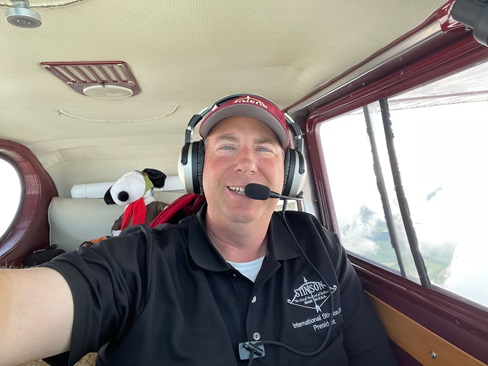For the first time in years, President Barack Obama’s new budget proposal does not include any new user fees for general aviation. Past budgets from the Obama administration have proposed a $100-per-flight fee for GA, but that idea has met with strong opposition from AOPA and others, including GA supporters in Congress who have repeatedly written to the White House insisting they would not support such a fee.
“After years of fighting to protect pilots from arbitrary fees and charges, we’re pleased to see that the White House has finally taken our message to heart and acknowledged that user fees on general aviation are a non-starter,” said AOPA President Mark Baker. “This is a big victory for the future of general aviation, but we’ll continue to keep a close watch to make sure this bad idea doesn’t re-emerge as it has in the past.”
The president’s past three budget proposals included user fees as did his very first budget request. But the 2016 budget proposal, which was released on Feb. 2, is silent on the matter and includes increased FAA funding in many areas.
The latest budget includes a $15.8 billion request to fund the FAA and its activities, including the search for an avgas replacement, air traffic management, operations, airport infrastructure, and NextGen modernization. In making the request, the White House notes that the money is an investment in the future of aviation, an industry that accounts for more than 5 percent of the nation’s gross domestic product.
As part of that $15.8 billion funding request, the president’s budget proposal seeks $9.92 billion for the operation and maintenance of the national air traffic control system, a 2-percent increase over the funding level enacted in the 2015 fiscal year.
A larger proposed increase of almost 10 percent would allow the FAA to continue operating the National Airspace System while investing in NextGen modernization. The budget proposes a total of $2.86 billion for facilities and equipment, including $845 million for NextGen-related capital investments—a $53 million increase over enacted 2015 spending levels. The money to be set aside for NextGen includes $13 million to expand performance-based navigation within metroplex areas, which include the nation’s busiest airspace. It also includes $45 million for the continued implementation for ADS-B while another $139 million will pay for the needed satellite subscription services.
Research, engineering, and development activities also get a boost in the 2016 budget proposal, with suggested funding of $166 million, a 5.7-percent increase over the 2015 enacted spending level. Included in that portion of the budget is $6 million to continue research needed to transition from avgas to an unleaded replacement fuel.
The budget would reduce funding in one critical area—Airport Improvement Program (AIP) grants. The president’s 2016 budget proposal would set a $2.9 billion obligation limitation for the program, a decrease of $450 million from the 2015 spending level. But the money would be focused on smaller commercial and GA airports that don’t have access to other revenue sources. At the same time, the budget would nearly double the passenger facility charge at all commercial service airports from $4.50 to $8. It also would eliminate guaranteed AIP entitlements at large hub airports, giving them more flexibility to generate alternative funding streams.
“Overall, this budget proposal represents good news for programs that are critical to general aviation,” said Jim Coon, AOPA senior vice president of government affairs. “But it’s important to remember that this is just the beginning of the budgeting process. AOPA will continue to be heavily engaged in working with lawmakers to ensure that the final FAA budget for 2016 and the longer-term FAA reauthorization process account for the needs of general aviation now and for years to come.”



